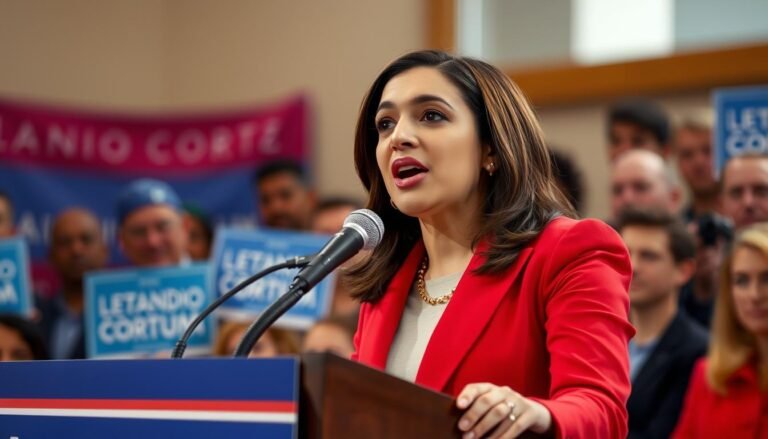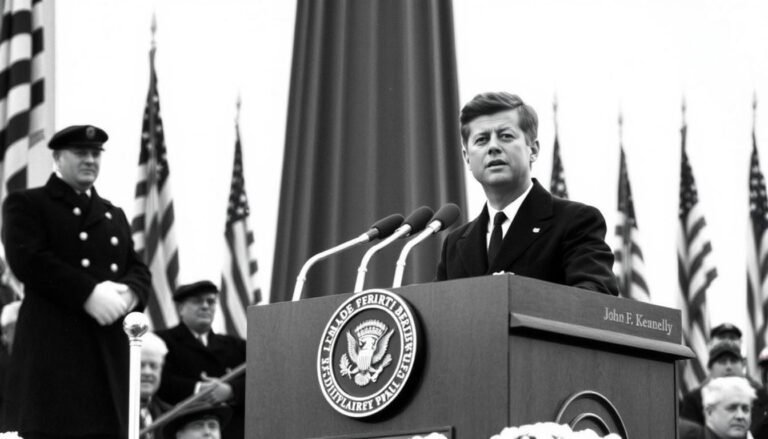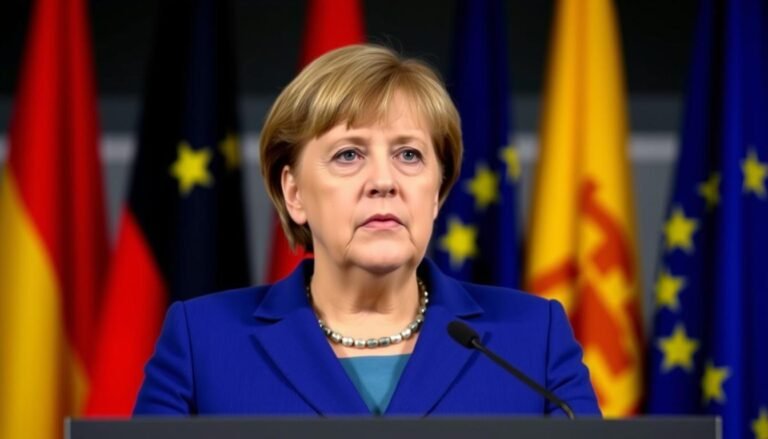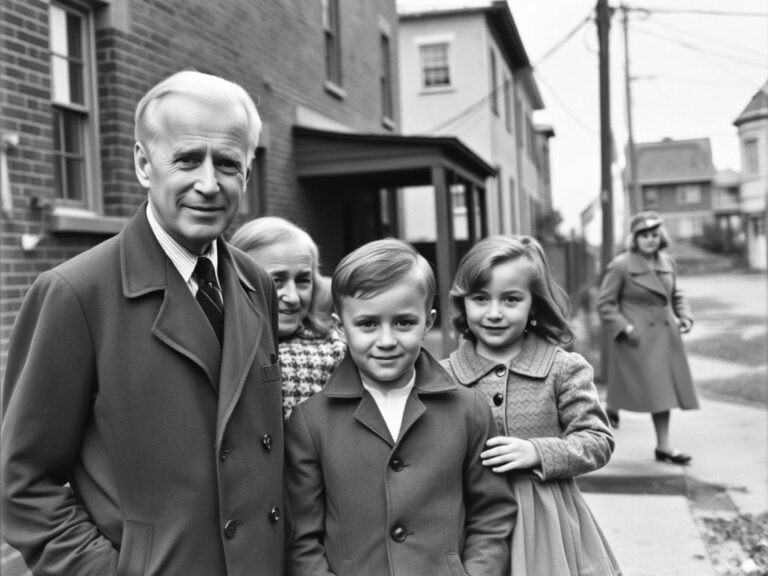Emmanuel Macron – The French Disruptor
When Emmanuel Macron founded his political movement En Marche! in April 2016, few predicted the seismic shift he would bring to French politics. At just 39, the former investment banker and political outsider would become France’s youngest president since Napoleon Bonaparte, shattering the traditional left-right divide that had dominated the Fifth Republic for decades. Neither fully embraced by the left nor the right, Macron positioned himself as the standard-bearer for a new kind of politics – pragmatic, pro-European, and unbound by ideological constraints. His meteoric rise represented a profound disruption to France’s political establishment, challenging conventional wisdom about how power is attained and wielded in one of Europe’s oldest democracies.
Macron’s presidency has been defined by bold reform attempts, fierce opposition, and a determination to transform France into a more competitive, flexible economy while maintaining its social protections. From labor market reforms to pension system overhauls, from handling the Yellow Vest protests to navigating the COVID-19 pandemic, Macron has consistently positioned himself as a modernizer willing to challenge entrenched interests. This approach has made him simultaneously one of Europe’s most influential leaders and one of France’s most polarizing presidents, admired for his vision yet criticized for his perceived aloofness and “president of the rich” image.
The Unprecedented Rise to Power
Emmanuel Macron’s path to the Élysée Palace defied all conventional political wisdom. Born in Amiens to a family of doctors, Macron studied philosophy, worked as an editorial assistant to renowned philosopher Paul Ricoeur, and later graduated from the elite École Nationale d’Administration (ENA) – the traditional breeding ground for France’s political elite. Yet unlike most ENA graduates who follow predictable career trajectories, Macron charted his own course.
After serving as a finance inspector for the French Ministry of Economy, Macron made the unusual decision to join the private sector as an investment banker at Rothschild & Cie Banque. This move, which friends warned could jeopardize any future political ambitions, actually became a key differentiator in his political narrative. During his time at Rothschild, Macron brokered Nestlé’s $12 billion acquisition of Pfizer’s baby food division, reportedly earning €2.9 million for his role in the deal.
Macron’s political career began in earnest when he joined François Hollande’s Socialist government, first as deputy chief of staff and later as Minister of Economy, Industry and Digital Affairs. However, it was his dramatic break with the Hollande administration in 2016 that truly set him apart. Rather than working within established party structures, Macron launched En Marche! (later renamed Renaissance) – a movement he characterized as “neither left nor right.”
“What I want is to start a democratic revolution in France… I am convinced that the French people are not destined for powerlessness. This conviction is the foundation of what we are going to build together.”
This bold move came at a time when France’s traditional parties were in disarray. The Socialist Party under Hollande had reached historically low approval ratings, while the center-right Republicans were embroiled in scandals surrounding their candidate François Fillon. Meanwhile, Marine Le Pen’s far-right National Front (now National Rally) was gaining momentum, capitalizing on anti-establishment and anti-EU sentiment.
Macron’s timing proved impeccable. Positioning himself as the only credible pro-European, centrist alternative to the extremes, he advanced to the second round of the 2017 presidential election alongside Le Pen. In the runoff, he secured a decisive victory with 66.1% of the vote, becoming France’s youngest president of the modern era.
What made Macron’s rise truly disruptive was not just his youth or his outsider status, but his complete circumvention of traditional party politics. He had never held elected office before becoming president. His movement, barely a year old at the time of his election, went on to secure a parliamentary majority in the subsequent legislative elections, further cementing the political revolution he had initiated.
Traditional Path to French Presidency
- Decades of party membership
- Gradual ascent through elected positions
- Support from established political machines
- Clear ideological positioning (left or right)
- Traditional campaign financing
Macron’s Disruptive Approach
- Created his own political movement
- No prior elected office experience
- Built grassroots support from scratch
- Centrist “neither left nor right” positioning
- Leveraged digital campaigning and social media
Macron’s rise represented a fundamental disruption to France’s political ecosystem. By successfully positioning himself as a technocratic reformer above partisan divides, he exposed the vulnerability of traditional party structures and demonstrated that in an era of political disillusionment, voters were willing to embrace alternatives outside the established system.
Disruptive Policies: Challenging the Status Quo
Emmanuel Macron’s presidency has been defined by his determination to implement reforms that previous administrations considered too politically risky to attempt. His approach has been characterized by a willingness to challenge entrenched interests and push through changes despite fierce opposition. Let’s examine four key areas where Macron has most significantly disrupted the French political and economic landscape.
1. Labor Market Reforms: Flexibility in a Rigid System

One of Macron’s first and most controversial initiatives was his overhaul of France’s notoriously rigid labor code. The reforms, enacted in September 2017 through executive orders, fundamentally altered the relationship between employers and employees in France. The changes included:
- Capping severance payments for unfair dismissals
- Simplifying worker representation within companies
- Allowing businesses to negotiate certain working conditions directly with employees, bypassing sector-wide agreements
- Making it easier for multinational companies to justify layoffs
These reforms represented a significant departure from France’s traditionally worker-protective labor environment. Macron argued that excessive rigidity in the labor market was hampering economic growth and contributing to France’s persistently high unemployment rate, which stood at nearly 10% when he took office.
“France is not a reformable country. Many have tried and failed because the French hate reform.”
The labor reforms sparked significant protests, with unions organizing demonstrations across the country. However, unlike previous presidents who often backed down in the face of street protests, Macron held firm. This demonstrated a key aspect of his disruptive approach: a willingness to weather short-term political storms for what he viewed as necessary long-term structural changes.
2. Pension System Reform: Tackling the Third Rail
Perhaps Macron’s most contentious reform has been his attempt to overhaul France’s complex pension system. The French retirement system, with its 42 different schemes offering varying benefits depending on profession, had long been considered politically untouchable despite its financial unsustainability.
Macron’s proposed reforms aimed to unify these disparate systems into a single points-based scheme and gradually raise the effective retirement age from 62 to 64. This represented a direct challenge to what many French citizens consider a fundamental social right – early retirement with generous benefits.
“We are rebuilding the French pension system for the next century, making it more just, more solid, and more equitable.”
The pension reform sparked the longest transport strike in modern French history in late 2019 and early 2020. The COVID-19 pandemic temporarily halted the reform effort, but Macron revived it in his second term. In March 2023, facing a parliament where his party lacked an absolute majority, Macron took the extraordinary step of using Article 49.3 of the French constitution to push the reform through without a full parliamentary vote.
This move triggered nationwide protests and no-confidence motions against his government. While the government narrowly survived these motions, the episode highlighted both Macron’s determination to implement structural reforms and the significant political costs of his disruptive approach.
3. European Integration: A Bold Vision for Europe

On the European stage, Macron has positioned himself as the continent’s most vocal advocate for deeper integration at a time when Euroskepticism was on the rise. In his landmark Sorbonne speech in September 2017, Macron laid out an ambitious vision for the EU that included:
- A common defense budget and integrated military force
- Harmonized corporate taxes across the bloc
- A eurozone budget managed by a eurozone finance minister
- Transnational lists for European Parliament elections
- Democratic conventions to engage citizens in EU reform
This vision represented a direct challenge to the more cautious, intergovernmental approach favored by many EU member states, particularly Germany. While not all of Macron’s proposals have been implemented, his advocacy has shifted the terms of debate on European integration and positioned France as a leading voice for EU reform.
Macron’s European stance has been particularly disruptive in the context of rising populism and nationalism across the continent. While leaders like Hungary’s Viktor Orbán and Italy’s Matteo Salvini were gaining popularity with anti-EU rhetoric, Macron unapologetically embraced the European project, arguing that the answer to globalization’s challenges was not less Europe but more.
Stay Informed on European Politics
Get expert analysis on Macron’s reforms and their impact on France and the EU. Subscribe to our newsletter for weekly insights on European political developments.
4. Climate Policy: Green Ambition Meets Yellow Vests
Macron has positioned himself as a champion of climate action, famously responding to U.S. President Donald Trump’s withdrawal from the Paris Climate Agreement with the slogan “Make Our Planet Great Again.” His climate policies have included:
- Commitment to carbon neutrality by 2050
- Plans to phase out coal power by 2022
- Ban on new oil and gas exploration
- Significant investments in renewable energy
However, Macron’s approach to climate policy triggered one of the most significant challenges to his presidency: the Yellow Vest movement. The protests began in November 2018 in response to a planned fuel tax increase designed to reduce carbon emissions. What started as opposition to a specific environmental measure quickly evolved into a broader movement against perceived economic inequality and Macron’s governing style.
The Yellow Vest crisis forced Macron to reconsider his approach to climate policy, highlighting the tension between environmental ambition and social acceptance. In response, he launched the Citizens’ Convention for Climate, a democratic experiment that brought together 150 randomly selected citizens to develop climate policy proposals. This innovative approach to policymaking represented yet another disruption to traditional governance models.

These four policy areas illustrate Macron’s disruptive approach to governance. Rather than accepting the conventional wisdom that certain reforms were impossible in France, he has consistently pushed boundaries, challenged entrenched interests, and sought to fundamentally transform French society and its position within Europe. This approach has yielded both significant achievements and fierce opposition, making Macron one of France’s most consequential modern presidents regardless of one’s assessment of his policies.
Criticisms and Challenges: The Price of Disruption
Emmanuel Macron’s disruptive approach to French politics has come with significant political costs. His presidency has faced persistent challenges that have tested his leadership and complicated his reform agenda. Understanding these criticisms and challenges is essential to fully assessing Macron’s impact as a political disruptor.
The “President of the Rich” Label

From early in his presidency, Macron has struggled to shake the perception that his policies primarily benefit France’s economic elite. This criticism crystallized around several key decisions:
- Replacing the wealth tax (ISF) with a narrower tax on real estate
- Implementing a flat tax of 30% on capital gains
- Cutting corporate tax rates from 33% to 25%
- Reducing housing benefits for low-income residents
These measures, particularly the wealth tax reform, became powerful symbols for Macron’s opponents. The “president of the rich” label gained further traction due to Macron’s background as an investment banker and his sometimes tone-deaf remarks, such as telling an unemployed gardener he could “cross the street and find a job” or referring to train stations as places where one encounters “people who are nothing.”
“I’m not made to lead in calm weather. My predecessor did that… I’m made to lead in storms.”
Macron has consistently rejected this characterization, arguing that his economic reforms benefit all French citizens by creating a more dynamic economy. However, the perception has persisted and contributed significantly to his polarizing image.
The Yellow Vest Movement: A Crisis of Legitimacy
The Yellow Vest (Gilets Jaunes) protests that began in November 2018 represented the most serious challenge to Macron’s presidency. What started as opposition to a fuel tax increase quickly evolved into a broader movement against economic inequality and Macron’s governing style.
The movement was notable for several reasons:
- It emerged spontaneously through social media rather than through traditional political or union structures
- It drew support from across the political spectrum, particularly from rural and suburban working-class French
- It maintained significant public support despite instances of violence during protests
- It forced Macron to make substantial concessions, including canceling the fuel tax increase and implementing a €10 billion package of economic measures
The Yellow Vest crisis exposed a fundamental tension in Macron’s presidency: his technocratic approach to governance, while effective for implementing complex reforms, created a perception of detachment from ordinary citizens’ concerns. The movement forced Macron to launch a “Great National Debate,” a three-month listening tour and series of town halls across France – an unprecedented response to a social movement by a French president.
Governing Style: “Jupiter” in the Élysée

Macron has been frequently criticized for his “vertical” or “Jupiterian” governing style – a reference to his own description of how the French presidency should function. This approach is characterized by:
- Centralized decision-making with limited delegation
- Direct personal involvement in policy details
- Limited consultation with intermediate bodies like unions
- A preference for top-down reforms rather than bottom-up consensus-building
Critics argue that this style, while allowing for rapid implementation of reforms, undermines democratic deliberation and fails to build sustainable support for policy changes. Macron’s tendency to lecture rather than listen has further reinforced the perception of arrogance that has dogged his presidency.
“I think that generally, you need to be loved to be popular. I’m not looking to be loved. Because one is not elected to be loved.”
Macron’s defenders counter that his direct style is necessary to overcome France’s institutional inertia and resistance to change. They point to the failure of more consensual approaches under previous presidents to implement meaningful reforms.
Parliamentary Challenges: From Majority to Minority
Macron’s political disruption faced a significant test following the June 2022 legislative elections. His centrist coalition lost its absolute majority in the National Assembly, securing only 245 of the 577 seats – well short of the 289 needed for a majority. This outcome created a hung parliament, with significant blocs on both the left (NUPES alliance) and right (National Rally).
The loss of his parliamentary majority has forced Macron to govern differently during his second term:
- Relying on case-by-case alliances with other parties to pass legislation
- Making greater use of executive powers, including Article 49.3 to pass budgets without parliamentary votes
- Facing increased scrutiny and opposition from a more assertive legislature
This new political reality has significantly constrained Macron’s ability to implement his second-term agenda and highlighted the limitations of his disruptive approach when lacking strong parliamentary support.
The Challenge of Re-election: A Different Kind of Victory
Macron’s re-election in 2022 represented both an achievement and a warning. While he became the first French president in 20 years to win a second term, the nature of his victory differed significantly from his first:
2017 Election
- 66.1% in second round against Le Pen
- Broad coalition of center-left and center-right voters
- Positive vote for change and renewal
- Strong mandate for reform agenda
2022 Election
- 58.5% in second round against Le Pen
- Significant “lesser evil” voting
- Lower turnout and higher blank/spoiled ballots
- Weaker mandate and subsequent loss of parliamentary majority
The 2022 result suggested that while Macron remained preferable to the far-right alternative for a majority of French voters, his disruptive centrism had failed to build a durable political coalition. The subsequent legislative elections, in which his alliance lost its majority, further underscored this challenge.
These criticisms and challenges illustrate the inherent tensions in Macron’s disruptive approach to French politics. While his willingness to challenge established interests and push for structural reforms has enabled significant policy changes, it has also generated powerful opposition and complicated his ability to build sustainable support for his vision of a transformed France.
A Break from the Past: Macron vs. His Predecessors
To fully appreciate Macron’s disruptive impact on French politics, it’s instructive to compare his approach with that of his immediate predecessors, François Hollande and Nicolas Sarkozy. These comparisons highlight how Macron has fundamentally altered the French presidency in style, substance, and political positioning.

Political Identity: Beyond Traditional Divides
Both Sarkozy and Hollande operated within France’s traditional political framework. Sarkozy led the center-right UMP (now Republicans), while Hollande represented the center-left Socialist Party. Their political identities were clearly defined within this left-right spectrum, and they relied on established party structures for support.
Macron, by contrast, created his own political movement and explicitly positioned himself as neither left nor right. This approach allowed him to draw support from both traditional camps while avoiding their accumulated baggage. It also enabled him to present his policies not as ideologically driven but as pragmatic solutions to France’s challenges.
“The left-right divide doesn’t make sense anymore… I want to unite the French people.”
This rejection of traditional political categories represented a fundamental disruption to France’s political ecosystem. It contributed to the collapse of the Socialist Party and significantly weakened the Republicans, accelerating the fragmentation of French politics into multiple competing blocs.
Reform Approach: Ambition vs. Incrementalism
| President | Reform Approach | Key Initiatives | Results |
| Nicolas Sarkozy | Hyperactive but scattered | Pension reform, university autonomy, reduction of civil service | Mixed; many initiatives abandoned or diluted |
| François Hollande | Cautious incrementalism | Same-sex marriage, modest labor reforms, territorial reorganization | Limited structural change; criticized as too timid |
| Emmanuel Macron | Systematic transformation | Labor code overhaul, pension system reform, tax system restructuring | Significant structural changes despite opposition |
Sarkozy entered office promising to “break with the past” but his reform efforts were often reactive and lacked coherence. His presidency was characterized by numerous initiatives that were frequently abandoned or diluted when they encountered resistance. Hollande, by contrast, adopted a more cautious, incremental approach to reform, seeking consensus but often achieving only modest changes.
Macron has pursued a more systematic transformation of French society and economy. Rather than isolated reforms, his agenda represents a comprehensive vision for modernizing France. Unlike his predecessors, he has generally maintained course despite opposition, viewing protests and low approval ratings as inevitable costs of meaningful change rather than signals to retreat.
Leadership Style: From “Normal” to “Jupiterian”
The contrast in leadership styles between Macron and his predecessors is particularly striking. Sarkozy embraced a hyperactive, omnipresent approach that earned him the nickname “Hyperpresident.” He personally involved himself in numerous issues but often moved on quickly, creating an impression of frenetic activity without sustained focus.
Hollande deliberately positioned himself as the “Normal President” in reaction to Sarkozy’s style. He adopted a more collegial approach, delegating significant authority to his ministers and seeking to lower the temperature of French politics. This approach, while initially welcome, eventually contributed to perceptions of indecisiveness and lack of vision.
“I don’t believe in a normal presidency. The French people didn’t elect me for that.”
Macron has embraced what he describes as a “Jupiterian” presidency – a reference to the Roman king of gods. This approach combines elements of Sarkozy’s activism with a more detached, almost monarchical bearing. Macron has centralized decision-making, maintained significant control over communications, and embraced the symbolic aspects of the presidency while simultaneously diving into policy details.
European Stance: From Caution to Ambition

On European policy, both Sarkozy and Hollande adopted relatively cautious approaches. Sarkozy worked closely with German Chancellor Angela Merkel during the eurozone crisis but primarily focused on crisis management rather than fundamental reform. Hollande similarly maintained France’s traditional commitment to European integration but rarely pushed for transformative changes to EU institutions.
Macron has adopted a far more ambitious European stance. His Sorbonne speech outlined a comprehensive vision for EU reform, including deeper integration in defense, fiscal policy, and democratic processes. He has positioned himself as the EU’s most vocal defender at a time of rising Euroskepticism and has been willing to challenge Germany’s more cautious approach to eurozone reform.
Economic Philosophy: Breaking with Socialist Orthodoxy
Perhaps the most significant break Macron made with his immediate predecessor was in economic philosophy. Hollande was elected on a traditionally left-wing platform, famously declaring “my enemy is finance” and initially proposing a 75% tax on high incomes. Though he later pivoted to more business-friendly policies, this shift appeared reactive rather than part of a coherent vision.
Macron, despite serving in Hollande’s government, has pursued a fundamentally different economic approach. His policies combine:
- Supply-side reforms to increase competitiveness (labor market flexibility, tax cuts for businesses)
- Maintenance of key elements of France’s social model (universal healthcare, education)
- Significant public investment in strategic sectors (technology, green transition)
This approach represents a clear break with the Socialist Party’s traditional economic orthodoxy and has contributed to the party’s electoral collapse. It also differs from Sarkozy’s more conventional center-right economic policies by maintaining stronger state involvement in strategic sectors and emphasizing investment alongside fiscal discipline.
Communication Strategy: Direct Engagement
Macron has also disrupted traditional presidential communication patterns. Sarkozy was known for his omnipresence in media but often engaged through traditional channels. Hollande initially promised regular press conferences but became increasingly withdrawn as his presidency progressed.
Macron has adopted a more controlled but direct communication strategy:
- Extensive use of social media to bypass traditional media filters
- Long-format interviews and debates rather than brief press encounters
- Carefully staged symbolic moments (addressing Congress at Versailles, hosting world leaders at iconic locations)
- Direct engagement with citizens through town halls and the Great National Debate
This approach has allowed Macron to maintain greater control over his message while still projecting accessibility. It represents a modern adaptation of the Fifth Republic’s traditionally vertical communication model.
These comparisons highlight how Macron has fundamentally disrupted the patterns established by his predecessors. By rejecting traditional political categories, pursuing systematic rather than incremental reforms, adopting a distinctive leadership style, and advancing an ambitious European vision, Macron has redefined the French presidency for the 21st century – for better or worse, depending on one’s perspective.
Public Perception: Reformer or Divisive Figure?
Emmanuel Macron’s disruptive approach to French politics has made him one of the country’s most polarizing modern presidents. Public perception of Macron is characterized by sharp divisions that cut across traditional political lines. Understanding these perceptions is crucial to assessing his impact as a political disruptor.
The Approval Ratings Rollercoaster

Macron’s popularity has followed a volatile trajectory throughout his presidency. He began with approval ratings above 60% following his 2017 election but experienced one of the steepest and fastest declines in the Fifth Republic’s history. By late 2018, during the height of the Yellow Vest crisis, his approval had fallen to around 25%.
Several patterns have characterized Macron’s approval ratings:
- Stronger support among urban, educated, and higher-income voters
- Consistently low approval in rural and post-industrial areas
- Temporary boosts during international crises (COVID-19 pandemic, Ukraine war)
- Sharp declines following controversial reforms (labor code, pension system)
Unlike some previous presidents who maintained stable bases of support, Macron’s approval has been highly volatile, reflecting both the breadth and the shallowness of his political coalition. This volatility underscores the challenges of his disruptive centrist positioning – while it allowed him to draw support from across the political spectrum, it has struggled to generate deep loyalty.
The Demographic Divide
Public perception of Macron reveals sharp demographic divides that reflect broader tensions in French society. His support is strongest among:
- Urban professionals and business leaders
- Highly educated voters
- Pro-European internationalists
- Older, economically secure retirees
He faces strongest opposition from:
- Rural and small-town residents
- Working-class voters in post-industrial regions
- Public sector employees
- Young voters concerned about climate and inequality
“There are two Frances that are looking at each other and not talking to each other: a France of the big cities, integrated into globalization, and a peripheral France where people feel abandoned.”
These divisions reflect what French geographer Christophe Guilluy has described as “peripheral France” versus “metropolitan France” – a geographical, economic, and cultural divide that has become increasingly salient in French politics. Macron’s technocratic, pro-globalization approach has resonated with the latter while often alienating the former.
The Competing Narratives
Macron as Reformer
- Modernizing an ossified economy
- Making France more competitive
- Defending liberal democracy against populism
- Strengthening France’s European leadership
- Breaking political taboos to secure France’s future
Macron as Divisive Figure
- Favoring the wealthy at workers’ expense
- Undermining France’s social model
- Governing with arrogance and detachment
- Eroding democratic norms through executive power
- Lacking empathy for ordinary citizens’ struggles
These competing narratives about Macron reflect genuine tensions in his governance approach. His reforms have indeed modernized aspects of the French economy and strengthened France’s voice in Europe. At the same time, his technocratic style and focus on competitiveness have often appeared disconnected from everyday concerns about economic security and social cohesion.

Media Portrayal: From “Mozart of Finance” to “Jupiter”
Media portrayal of Macron has evolved significantly throughout his political career. During his rise, he was often depicted as a brilliant wunderkind – “the Mozart of Finance” who could transcend traditional political divisions. French and international media largely embraced his youth, dynamism, and pro-European stance as a refreshing alternative to populism.
As his presidency progressed, media coverage became more critical, focusing on:
- His “Jupiterian” leadership style, perceived as aloof and monarchical
- The disconnect between his rhetoric of renewal and his background in elite institutions
- The contrast between his international stature and domestic unpopularity
- His struggles to connect emotionally with ordinary French citizens
International media has generally remained more positive than French domestic coverage, often portraying Macron as a defender of liberal values and European integration against rising populism. This divergence reflects both Macron’s stronger international image and the particular intensity of France’s internal political debates.
The “Neither Left Nor Right” Paradox
Macron’s positioning as “neither left nor right” has created a paradoxical public perception. By rejecting traditional political categories, he initially attracted support from moderate voters across the spectrum who were disillusioned with traditional parties. However, this positioning has also made it difficult for many voters to identify with him emotionally or ideologically.
“The ‘at the same time’ politics doesn’t work anymore. The French want clarity.”
Macron’s “at the same time” approach – attempting to simultaneously embrace policies from both left and right – has increasingly been perceived as ambiguous rather than pragmatic. This perception has contributed to the strengthening of more ideologically clear alternatives on both the far-left (Jean-Luc Mélenchon’s France Unbowed) and far-right (Marine Le Pen’s National Rally).
The Evolution of Public Perception
Public perception of Macron has evolved through distinct phases:
- The Honeymoon (2017): Initial enthusiasm about a young, dynamic president promising renewal
- The Disillusionment (2018-2019): Growing criticism of his governing style and pro-business reforms, culminating in the Yellow Vest crisis
- The Crisis Manager (2020-2021): Temporary boost in approval during the COVID-19 pandemic as Macron adopted a “whatever it costs” approach to economic support
- The Contested Reformer (2022-present): Renewed polarization following his re-election and controversial pension reform
This evolution reflects both the inherent challenges of Macron’s disruptive approach and the difficulty of maintaining public support while implementing structural reforms in a country with strong attachment to its social model.
Deepen Your Understanding of French Politics
Download our comprehensive analysis of Macron’s presidency and its impact on France’s political landscape. Get expert insights on his reforms, challenges, and legacy.
Beyond Approval Ratings: A Complex Legacy
Public perception of Macron extends beyond simple approval or disapproval. Even his critics often acknowledge his intelligence, work ethic, and commitment to his vision of a modernized France. Similarly, many supporters recognize his communication missteps and the legitimate concerns of those who feel left behind by his reforms.
This nuanced perception suggests that Macron’s ultimate legacy may be more complex than current polarization indicates. While he has failed to create the broad consensus he initially sought, he has succeeded in disrupting calcified political structures and forcing a reconsideration of France’s economic and social model. Whether this disruption leads to sustainable renewal or deeper division remains an open question as France approaches the end of Macron’s second term.
Conclusion: The Legacy of France’s Disruptor

Emmanuel Macron’s emergence as a political force and his subsequent presidency represent one of the most significant disruptions to French politics in the Fifth Republic’s history. As we have explored throughout this analysis, Macron has challenged established political categories, pursued ambitious reforms despite fierce opposition, and fundamentally altered how power is obtained and exercised in France.
The legacy of Macron’s disruption will likely be multifaceted and contested. On one hand, he has succeeded in implementing reforms that previous presidents considered politically impossible, from liberalizing the labor market to restructuring the railway system to beginning the transformation of the pension system. He has strengthened France’s voice in European affairs and positioned the country as a defender of liberal democracy and multilateralism on the global stage.
“France is back. For too long, we were paralyzed by fear and lack of confidence in ourselves. That time is over.”
On the other hand, Macron’s disruptive approach has contributed to increased political polarization, with strengthened far-left and far-right movements positioning themselves as alternatives to his centrist technocracy. His struggles to connect emotionally with many French citizens and the perception that his reforms primarily benefit the already privileged have limited his ability to build a durable political coalition.
Perhaps most significantly, Macron’s presidency has accelerated the collapse of France’s traditional party system without fully establishing a stable alternative. The Socialists and Republicans, the center-left and center-right parties that dominated French politics for decades, have been marginalized, but Macron’s own Renaissance party lacks deep roots and faces uncertain prospects beyond his presidency.
The Future of French Politics After Macron
As France looks toward the post-Macron era, several scenarios appear possible:
- Consolidation of the new landscape: The tripartite division between Macron’s centrists, Le Pen’s nationalists, and Mélenchon’s leftists could become the new normal, replacing the traditional left-right divide.
- Restoration of traditional forces: The Republicans and Socialists could rebuild around new leaders and programs, potentially absorbing elements of Macron’s coalition.
- Further fragmentation: French politics could become even more divided, with multiple competing blocs making stable governance increasingly difficult.
- Populist breakthrough: Either the far-right or far-left could achieve a breakthrough, fundamentally altering France’s political and economic orientation.
Which of these scenarios materializes will depend partly on the final years of Macron’s presidency but also on broader economic, social, and geopolitical developments beyond his control.
The Paradox of Macron’s Disruption
The ultimate assessment of Macron as a political disruptor contains a central paradox: his greatest strengths have also been his greatest weaknesses. His outsider status and technocratic approach enabled him to implement bold reforms but limited his ability to build deep political support. His “neither left nor right” positioning allowed him to draw support from across the spectrum but made it difficult for voters to identify with him emotionally.
Similarly, his ambitious vision for a transformed France and strengthened Europe inspired many but appeared disconnected from everyday concerns about economic security and social cohesion. His willingness to challenge entrenched interests demonstrated political courage but generated powerful opposition that has complicated his reform agenda.

These paradoxes suggest that Macron’s disruption of French politics remains incomplete. He has successfully challenged old structures and assumptions but has not yet established a fully coherent alternative. The final assessment of his legacy will depend on whether the changes he has initiated lead to a more dynamic, inclusive France or whether they simply pave the way for new forms of division and instability.
What is clear, however, is that French politics will not return to its pre-Macron state. For better or worse, Emmanuel Macron has fundamentally altered the country’s political landscape, challenging its citizens and institutions to reimagine what France can be in the 21st century. In that sense, regardless of one’s assessment of his specific policies, he has truly earned the title of “The French Disruptor.”







